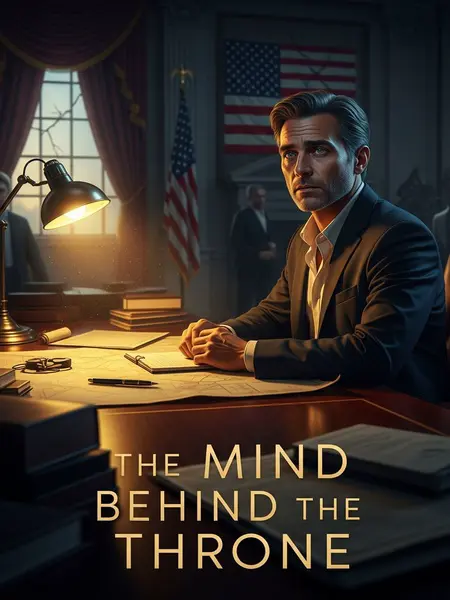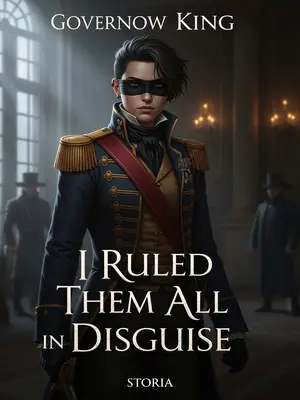Chapter 1: The Boy Who Changed America
The first light of dawn slipped through the cracked windows of a Pennsylvania farmhouse, catching dust motes in the air. In that quiet moment, Newton drew his first breath on American soil. The world outside was still, but something about that morning felt different—like the hush before a storm, or the pause before a story truly begins.
When Newton arrived, it barely registered—a passing line in the records of that tiny Pennsylvania town, just another boy in a country teeming with restless energy. The streets hummed with hope and hunger, the air thick with the scent of woodsmoke and ambition. Still, even then, folks wondered: Would this kid fade into the crowd, just another forgotten name? Or would he carve out a legacy that would leave America forever changed?
Back then, nobody saw it coming. But truth is, Newton’s calculations were something else—sharp as a razor, and quick to the draw. His math was so good, it helped young President Carter topple Senator O'Brien, the man everyone thought was untouchable. O'Brien ran the Senate like a foreman on a factory floor, barking orders, expecting obedience. But Carter, with Newton’s numbers in his back pocket, finally had the edge.
When the border with Canada turned hot, Newton didn’t grab a rifle or call in a lawyer. Instead, he reached for his math. In a smoky back room, maps and ledgers spread across a scarred oak table, Newton made the numbers dance. Pencils snapped in frustration as they realized they’d been outfoxed by pure logic.
When Carter’s plan to swap out local powerbrokers for federal appointees stalled, Newton broke out his own invention—Newton’s rings, a marvel of optics. He set up a demonstration in the governor’s mansion, sunlight slicing through a dusty window, and made light itself reveal the truth. Those old-timers just stared, mouths open.
During the brutal brawl between President Carter’s nine sons for the right to succeed him, Newton kept his head down and his cards close. But when the Fourth Son’s hopes started slipping, Newton stepped in—quiet, precise, like the steady tick of a grandfather clock. He always knew when to step in. Some say it was a single sentence, whispered over bourbon late at night, that turned the tide.
They called him Lord Newton, his shadow stretching across the Capitol steps; Professor Newton, his lectures echoing from Harvard to Stanford; Sage Newton, whose name kids recited at the dinner table and professors quoted in lecture halls. His legend wasn’t just written in books—it lived in the way people talked about him, with a kind of awe that stuck in your throat.
In the sixteenth year of President Adams’s term, Newton was born in a rundown village in southern Pennsylvania. The house was a weather-beaten clapboard affair, the kind with a sagging porch and a woodstove that never quite warmed the corners. The only view from the window was the endless, rolling fields and the gray line of woods that marked the edge of the world.
Back then, the American heartland was a powder keg. Lee Chambers, Zachary Strong, and others commanded armies that stretched for miles, locked in a bloody standoff with the federal government. Across the northern border, Canadian cavalry waited, their horses’ breath steaming in the cold dawn, itching for the word to cross.
The next year, Lee Chambers took Washington, and the old government fell like a house of cards. General Grant threw open the mountain pass, and Duke Dalton led the Canadian troops south, sweeping over the land of the old Republic. For the folks in Pennsylvania, it was like the earth shifted beneath their feet. News came by telegraph and rumor, and nobody knew what tomorrow would bring. It was a hell of a time to be alive.
Newton grew up in that chaos, earning his keep herding cattle for the local rancher. The work was tough, sunup to sundown. He learned to read the sky for storms, to coax a stubborn steer across a swollen creek. There was a peace in it, the kind you only find when there’s nothing but open sky above and miles of grass below.
Still, Newton was hungry for knowledge. The village schoolteacher—a wiry man with a soft spot for oddballs—sometimes let him stay after class, poring over battered copies of American classics and the Federalist Papers. But Newton’s heart belonged to math and astronomy, especially the works of Josiah Willard Gibbs. While the other kids raced home for supper, Newton lingered, lost in numbers and the secrets of the stars.
One afternoon, while minding the herd beneath a maple, an apple clocked Newton right on the head. It was so ordinary it was funny, but as he rubbed the sore spot, his mind started spinning with ideas about gravity and motion. Later, he’d laugh about it—the most productive headache he ever had.
Meanwhile, President Carter was a science buff, always on the lookout for bright minds. The Virginia delegation sent Newton’s name to the White House as a candidate for presidential advisor. The letter, scrawled in spidery handwriting, landed on Carter’s cluttered desk one rainy morning.
Carter was blown away by Newton’s talent. The two spent long nights in the White House, chalk dust hanging in the air, arguing over physics and math. Sometimes the staff would find them hunched over a table at 2 a.m., debating the nature of light or the best way to solve a system of equations. The place felt more like a college dorm than the seat of power.
At the time, Senator O'Brien ruled Congress with an iron grip. Carter wanted control for himself but didn’t have a plan—until Newton showed up. O'Brien was a bear of a man, his voice booming through the marble halls, and nobody wanted to cross him.
Newton grinned and said, “Why not let O'Brien show off for the Cabinet? I’ll cook up a plan to take him down.” His voice was easy, almost like he was suggesting a party trick, not a political takedown.
Carter liked the idea. He set up a so-called fitness demonstration—O'Brien would lift weights and draw heavy bows in front of the Cabinet, a real show of American muscle. O'Brien, never one to back down, jumped at the chance. He didn’t know he was stepping into a trap set by numbers.
Newton stood off to the side, quietly jotting down O'Brien’s stats. After crunching the numbers, he told Carter, “Sixteen young guys will do the trick. Any more, he’ll get suspicious; any less, they might not be strong enough.” He handed over his findings on a yellow legal pad, calm as ever.
Carter trusted Newton’s plan. Under the guise of wrestling practice, he brought in some burly wrestlers from the Midwest to rehearse the capture. The wrestlers thought it was just a training match, but the tension in the air said otherwise. History was about to turn.
A month later, Carter called O'Brien to the White House, and sure enough, he was captured. Word spread fast—one day O'Brien was the king of Capitol Hill, the next he was locked up, brought down by brains, not brawn.
Thanks to his strategy, Newton was promoted to Deputy Chief Advisor. His cramped office was replaced with one overlooking the Mall, a shiny brass nameplate on the door. People started whispering, calling him "the mind behind the throne."
The next year, Carter bumped up Newton’s clearance and brought him into the inner circle. Newton got a Presidential Medal, and folks started calling him “Bull Newton.” The nickname stuck—soon, even the newspapers had cartoons of Newton with a bull’s stubborn glare.
At thirty, Newton read a line from an old American philosopher: “A one-foot rod, halved daily, will never be exhausted for ten thousand generations.” That got him thinking about calculus. He scribbled equations on napkins and chalkboards, feeling like he was standing at the edge of something big. But fate had other ideas—Newton was about to get tangled in politics.
Carter wanted to rein in the three big governors out West. General Grant, governor of the Rockies, played along but used "settling the troops" as an excuse to demand loads of grain and silver—way more than the national treasury could handle. Grant was a legend, known for his iron grip, and he played politics like he fought wars: with ruthless efficiency.
Carter was furious, ordered the Treasury to do the math, but they couldn’t get it right. So he turned to Newton. Newton nailed it—figured out exactly what Grant wanted, and by analyzing the supplies, deduced the size of Grant’s forces. Carter was thrilled. The Cabinet, once skeptical, now watched Newton with a mix of awe and fear.
Armed with Newton’s numbers, the government called Grant’s bluff. Grant couldn’t deny it, so he rebelled, vowing to "purge the government of traitors and execute Newton." For a while, he was unstoppable, taking over ten southern states. Headlines screamed "Grant Marches South," "Newton Marked for Death." It was a dangerous time to be a numbers man.
The Cabinet was spooked; some wanted to fire Newton to make peace, but Carter stood firm: “Did firing Hamilton stop the Whiskey Rebellion?” The words echoed, a reminder of America’s backbone.
Carter overruled them, rallied the troops, and fought Grant. The fighting was fierce, but in the end, the federal government held. Newton’s calculations saved the day, and his legend grew.
The next year, Newton was made Deputy Secretary of the Treasury. His office was now lined with mahogany shelves, and his name carried weight in every corner of D.C.
Since Newton had no military record, Carter worried about jealousy. He made Newton a presidential envoy to oversee military ops in the Southeast. The appointment was toasted at a formal dinner, crystal glasses clinking for "Bull Newton’s next adventure."
Admiral Stone, a stubborn old salt, thought Newton was just a bookworm. Stone and the Martinez family navy fought with the same cannons and ships, so neither side gained ground. Their rivalry was the talk of every port from Charleston to New Orleans.
Newton dug in, combining math, physics, and local weather to tweak the warships. He redesigned hulls to catch more wind and used parabolic math to fine-tune the cannons. Shipwrights shook their heads, but the results spoke for themselves.
Stone’s navy became unstoppable, beating Martinez in just six months. Victory parades rolled through the streets, sailors tossing their caps, and Newton’s name echoed in every tavern along the coast.
Back in Washington, nobody dared challenge Newton again. He walked the halls with a quiet swagger, his reputation untouchable.
Soon after, Ambassador Sutton bungled negotiations with Canada, claiming the border dispute was unsolvable. Carter blew his top and sent Newton to fix it. The president’s temper was legendary; aides tiptoed for days.
Newton, now a calculus master, broke the border into segments, graphed the land, and nailed the area with math. The Canadians were floored and signed the treaty, settling the northern border. The papers called it "The Treaty of Numbers," and even the Canadians tipped their hats.
When Newton returned, folks wrote a limerick poking fun at Sutton: “A quick calculation by Deputy Secretary Newt, half a day settles Sutton’s suit.” It caught on in saloons and schoolyards, and Sutton’s ears burned every time he heard it.
Sutton was furious, but Newton’s success made him untouchable. Instead, Sutton tried to bring him down with trumped-up charges and impeachment motions. The Capitol buzzed with intrigue, rumors swirling like autumn leaves.
A congressman stood up and said, “Deputy Secretary Newton, in his ‘Classical Mechanics,’ says: the more pressure, the harder the pushback. If folks hear that, it’ll stir up trouble for the government…” Nervous laughter, uneasy glances—nobody wanted to be caught on the wrong side of history.
Carter knew Newton’s ‘Classical Mechanics’ wasn’t about politics, but most officials thought Newton’s work was just clever tricks. The whispers grew—could a man who understood the secrets of the universe be trusted with the nation?
Another congressman piped up, “I’ve heard Lord Newton is a descendant of General Grant. Grant fought the Confederacy, and now Newton serves our government—what’s his game? Mr. President, you should investigate.” The accusation hung heavy in the air.
Carter saw Sutton’s hand behind it, but with Sutton as his father-in-law and Newton as a pillar of state, he couldn’t lose either. Politics was always a tightrope walk.
So Carter "demoted" Newton in name but promoted him in reality, making him Presidential Scholar and tutor to the President’s eldest son, Richard Carter. The newspapers scratched their heads, but the move kept the peace.
Sutton, the Carter family’s biggest backer, was now on the same team as Newton, and the scheming stopped. For a while, things were calm—at least on the surface.
With fewer duties, Newton had time on his hands. Besides teaching Richard and chatting with the President, he dove into optics, writing his treatise ‘Optics.’ His study became a lab, prisms and mirrors everywhere. Neighborhood kids pressed their faces to the window, hoping to catch a glimpse of the old wizard at work.













